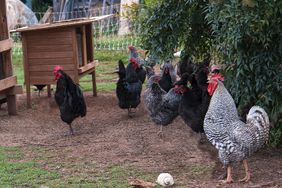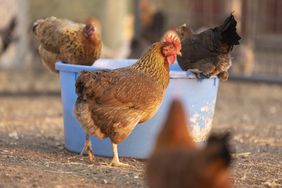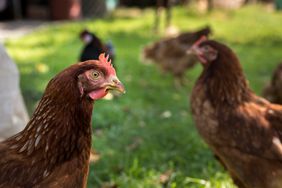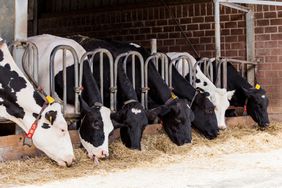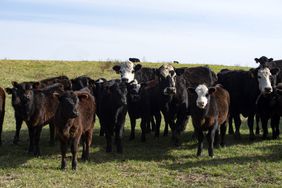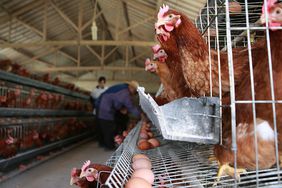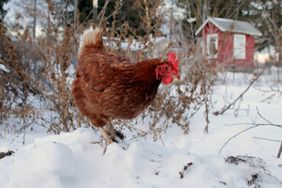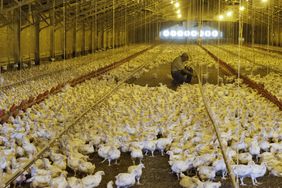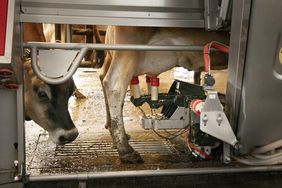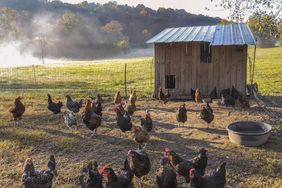:max_bytes(150000):strip_icc()/Chicken-Crowd-2000-297b601b8bba441bbc414f0847311025.jpg)
As cases of avian influenza pop up across the country, now is the best time to take steps to protect your own flock. In doing so, you'll help mitigate spread to your neighbors and beyond.
"Highly pathogenic avian influenza is a highly contagious viral disease affecting many bird species," says Iowa State Veterinarian Jeff Kaisand. "Wild birds (migratory birds) carry the disease and oftentimes do not show any clinical signs. That's why it's important to make sure that interaction between wild birds and commercial production is limited and that divisions are maintained."
Kaisand says it should be assumed that all wild birds are carrying the disease.
- WATCH VIDEO: 6 steps to mitigate the spread of avian influenza
What can you do to protect your flock and help others as the threat grows?
Follow these recommended biosecurity protocols:
Report sick birds or unusual bird deaths.
"What is absolutely critical is to report sick birds or unusual bird deaths to state or federal animal health officials immediately," Kaisand says. "The key to a swift and rapid response to an outbreak is reporting early. That gives us the opportunity to contain the disease as quickly as possible."
Some of the signs of highly pathogenic avian influenza include:
- coughing
- sneezing
- nasal discharge
- diarrhea
- swelling of the eyelids
- blue tinge to the visible skin
- decreased water consumption (this is sometimes noted even before any other clinical signs)
- drop in egg production
- sudden death
- difficult, deep breathing
- lethargy
Limit traffic.
"Limit the traffic on and off your poultry facilities and limit the visitors on site," says Iowa Secretary of Agriculture Mike Naig.
Maintain a clean environment.
It's important to have a clean environment, whether in a small, backyard flock or a large commercial facility says Secretary Naig, and to ensure that it's clean every day.
Change boots or clothing.
"This virus can be shed in the feces of birds," Kaisand says. "If you're walking outside in areas where there could be bird droppings from wild birds and then plan to enter buildings, you should change your boots or disinfect them before entering."
- READ MORE: Dress for biosecurity
Separate wild birds and your flock.
"We encourage poultry producers and individuals with backyard flocks to consider putting the birds inside," Kaisand says. "Draw a line of separation between contact with wild birds and your birds." In addition, you can put up netting on buildings to prevent wild birds from getting inside and having direct contact with your flock.State officials work quickly to evaluate a premise with avian influenza identified on site and to identify any potential connections to surrounding facilities that may be at risk. Their No. 1 priority is to quarantine flocks and immediately stop the spread of virus.
"We strongly encourage producers to review their biosecurity plans," says Kaisand. "This should include protecting yourself from wild birds and also any connections to other farms. Make sure you have firewalls in place."
